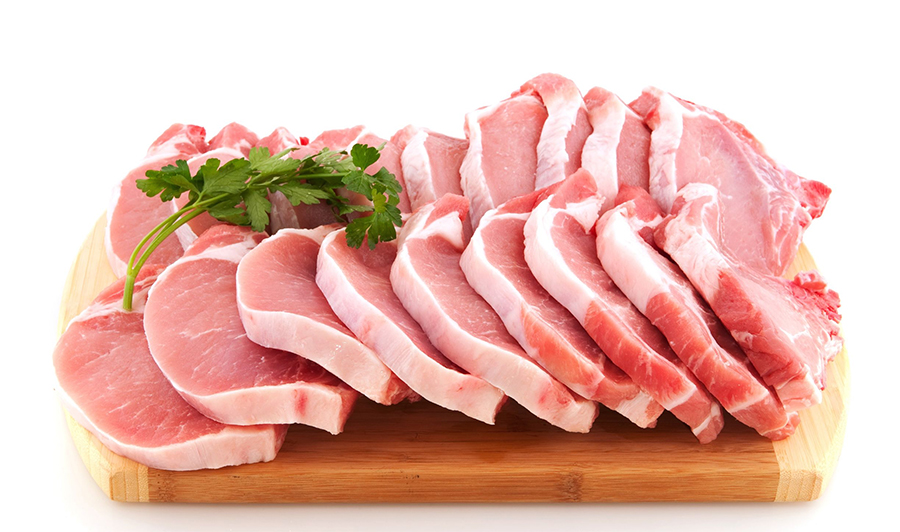
Evidence that British-produced supermarket pig meat is contaminated by MRSA has been found in new research.
MRSA of livestock origin can cause serious and invasive human infections like blood poisoning, pneumonia, bone infections and heart infections. This study indicates that consumers eating pork twice a week may be exposed to MRSA every three months.
In addition, a parallel Guardian investigation has revealed Livestock-associated MRSA CC398 in pork products sold in Sainsbury’s, Asda, the Co-operative and Tesco.
Out of 100 samples, nine samples (eight Danish and one Irish) - tested positive. This strain of the superbug is endemic in pig farms in a number of European countries, particularly Denmark, which is a key exporter to the UK.
Helen Browning, chief executive of the Soil Association, said; “The Alliance to Save our Antibiotics have been warning for years that UK pig farms could develop MRSA, as they have done across Europe, and that government should be testing routinely for this. It is vital to absolutely minimise the use of antibiotics in farm animals, and encourage systems that keep animals healthy without these drugs. Government must now take this issue seriously, and act to protect public health.”
The emergence and spread in animals of antibiotic-resistant bacteria like MRSA is linked to overuse of antibiotic in farming. Animals are often given antibiotics routinely even when no disease has been diagnosed, creating favourable conditions for the survival of resistant bacteria which then can be passed to humans.
Research published this month has shown that the use on pig farms of cephalosporin antibiotics, which are classed as critically important in human medicine, “is strongly associated with MRSA in pigs”.
The use of these antibiotics in British farming has been increasing for over a decade and is currently at close to record levels.
Cóilín Nunan, Principal Scientific Adviser to the Alliance, said: “Livestock-associated MRSA is evolving and more dangerous variations are emerging. Scientists are warning it could ultimately lead to a pandemic spread in humans as so many animals carry the superbug”.
The research was carried out by scientists at Cambridge University led by Dr Mark Holmes, and found that two samples of pig meat out of 52 bought from English supermarkets were positive for MRSA. One sausage sample had two different MRSA strains, and a third strain was found in pork mince. Genetic analysis (whole-genome sequencing) of the bacteria showed that the three MRSA were of livestock-origin and of a type called ST398.
Dr Mark Holmes said: “Our findings indicate that MRSA ST398 is established in UK pig farms. The presence of this MRSA in retail meat clearly demonstrates a potential pathway for the transmission of antimicrobial resistance from livestock to the broader human population, and not just to those with direct contact with farm animals”.
While adequate cooking will kill the MRSA, the threat lies in the fact that the bacteria can be transferred to people’s skin when it is handled before cooking, potentially causing an infection at a later date.
People directly in contact with affected farm animals, including farmers and vets, are most at risk. However, an increasing number of cases are occurring in people with no direct livestock contact suggesting spread from retail meat, the environment or from human to human.
The Alliance to Save our Antibiotics is calling for the Government to tackle inappropriate use of antibiotics in farming, including steps to phase out routine preventative use of antibiotics, a ban on mass medication of animals in feed or drinking water where no disease has been diagnosed, and restrictions on the use of the critically important antibiotics.
Philip Lymbery, Chief Executive at Compassion, says: “While the dangers of overusing antibiotics in human medicine are well documented, the impact of farm use has been generally under-publicised – which is surprising, given that animals currently account for around 45% of UK antibiotic use. The causal link between on-farm antibiotic use and resistance in human infections is nevertheless widely recognised by organisations including the WHO and the EFSA.”
Zac Goldsmith MP said “In the light of these findings, ambitious targets must be set to tackle the misuse of these precious resources in farming, accompanied by a shift towards good husbandry, animal welfare and hygiene practices which reduce the need for drugs in the first place."
